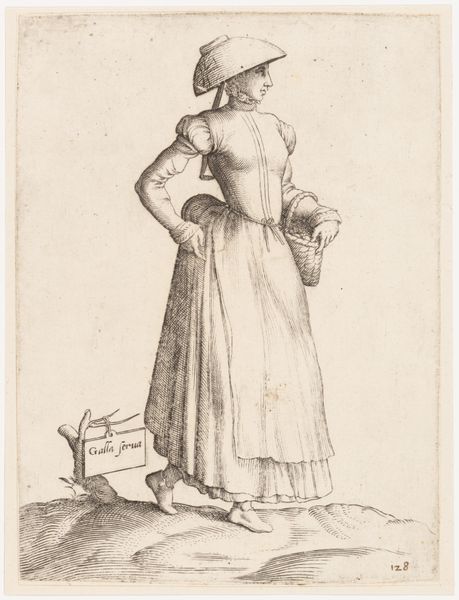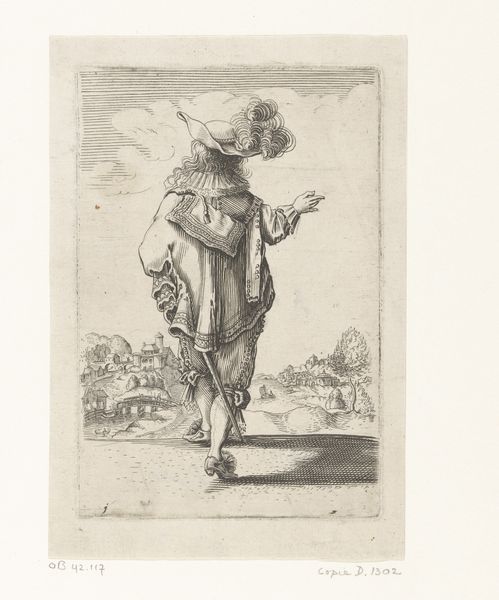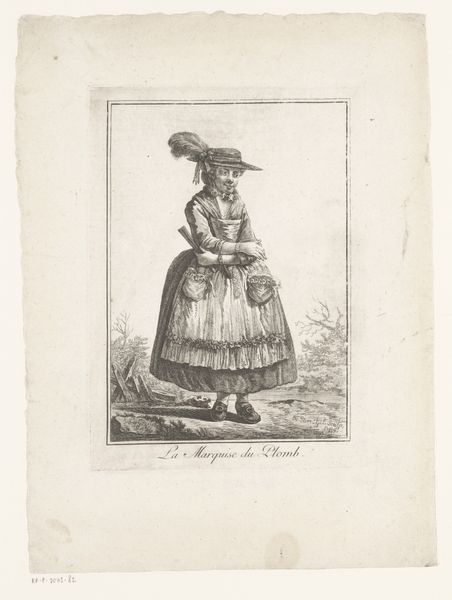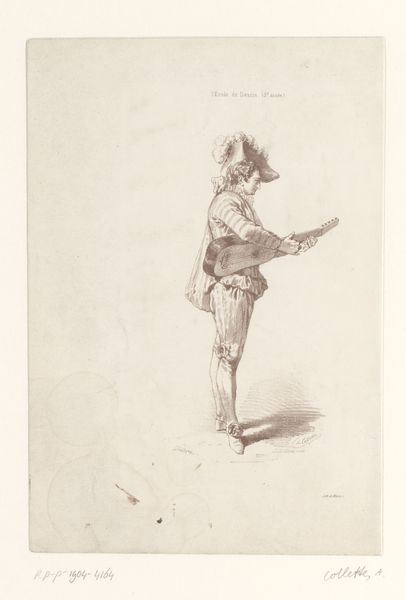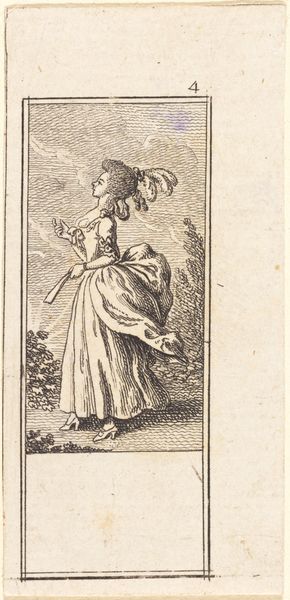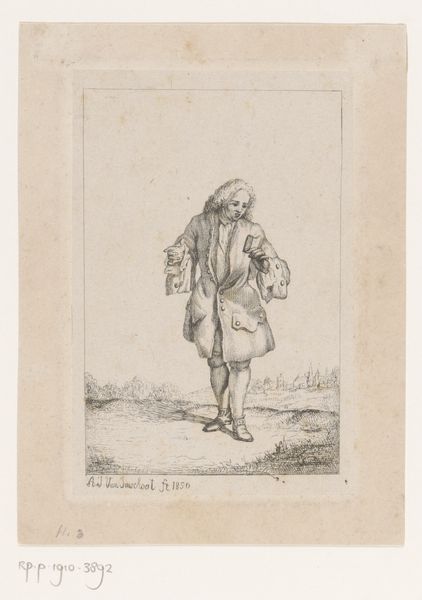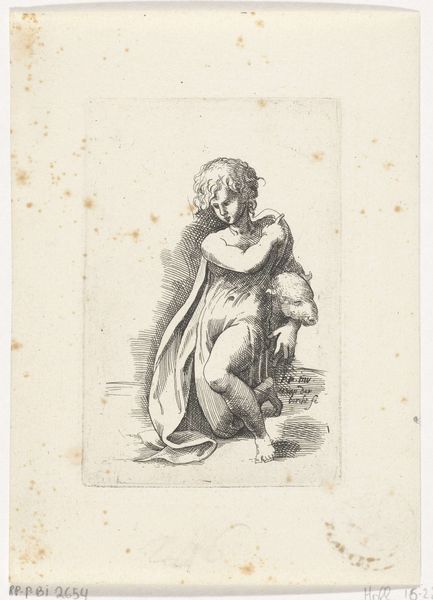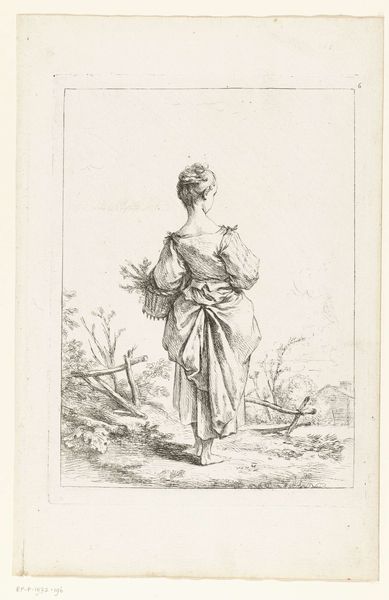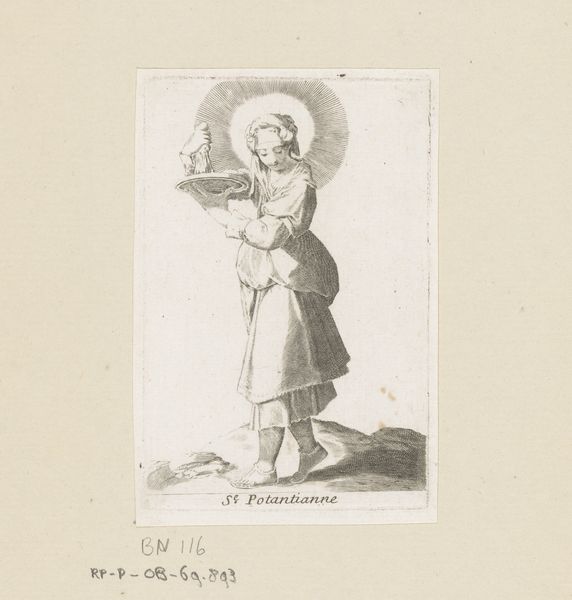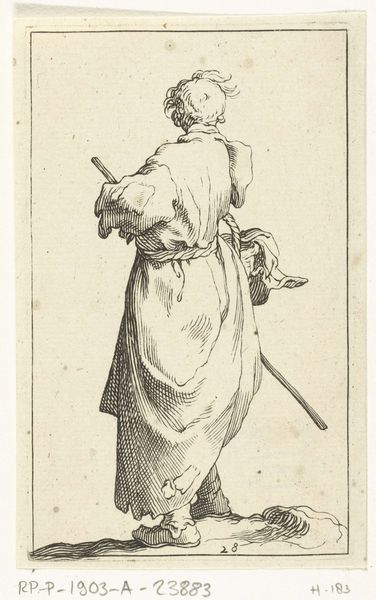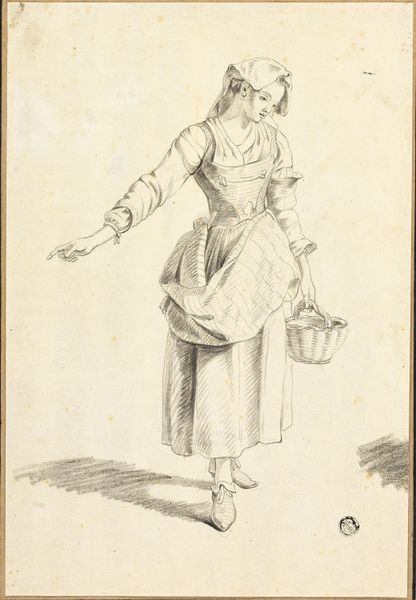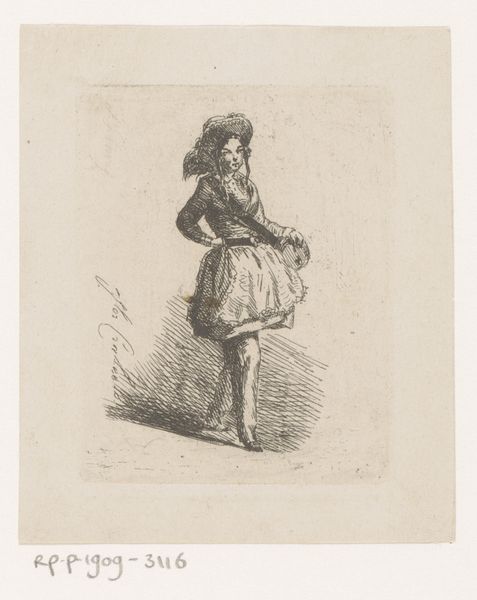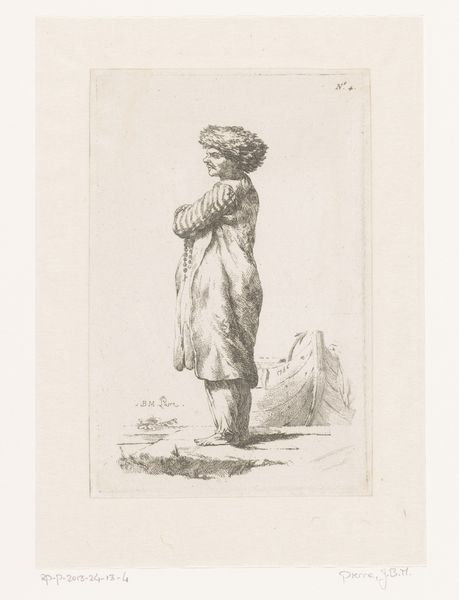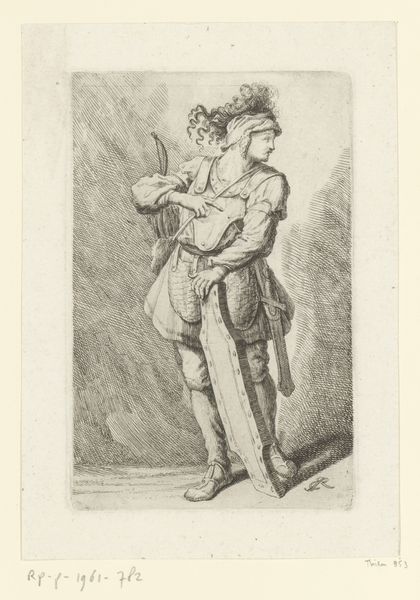
Boerenvrouw met juk onder haar arm en kan in de andere hand 1756 - 1797
0:00
0:00
hendrikwillemschweickhardt
Rijksmuseum
drawing, print, etching, engraving
#
portrait
#
drawing
# print
#
etching
#
old engraving style
#
landscape
#
figuration
#
15_18th-century
#
genre-painting
#
engraving
Dimensions: height 84 mm, width 58 mm
Copyright: Rijks Museum: Open Domain
Hendrik Willem Schweickhardt created this etching, "Boerenvrouw met juk onder haar arm en kan in de andere hand", which translates to "Farmer's wife with yoke under her arm and jug in the other hand". Made in the late 18th century, this work offers a glimpse into the romanticized view of rural life popular at the time. This image invokes the visual codes of agrarian virtue. The woman carries her tools with an air of humble dignity, a stark contrast to the opulence of urban centers. Looking at the work's creation in the Netherlands, a country shaped by its agriculture and trade, we can see how images of rural life served as a powerful cultural symbol. These images offered a sense of stability and tradition in a rapidly changing world. Researching the printmaking industry and the art market of the time can further reveal the social conditions that shaped its production. The image is now preserved in the Rijksmuseum. Ultimately, this artwork reminds us that the meaning of art is always tied to its social and institutional context.
Comments
No comments
Be the first to comment and join the conversation on the ultimate creative platform.
